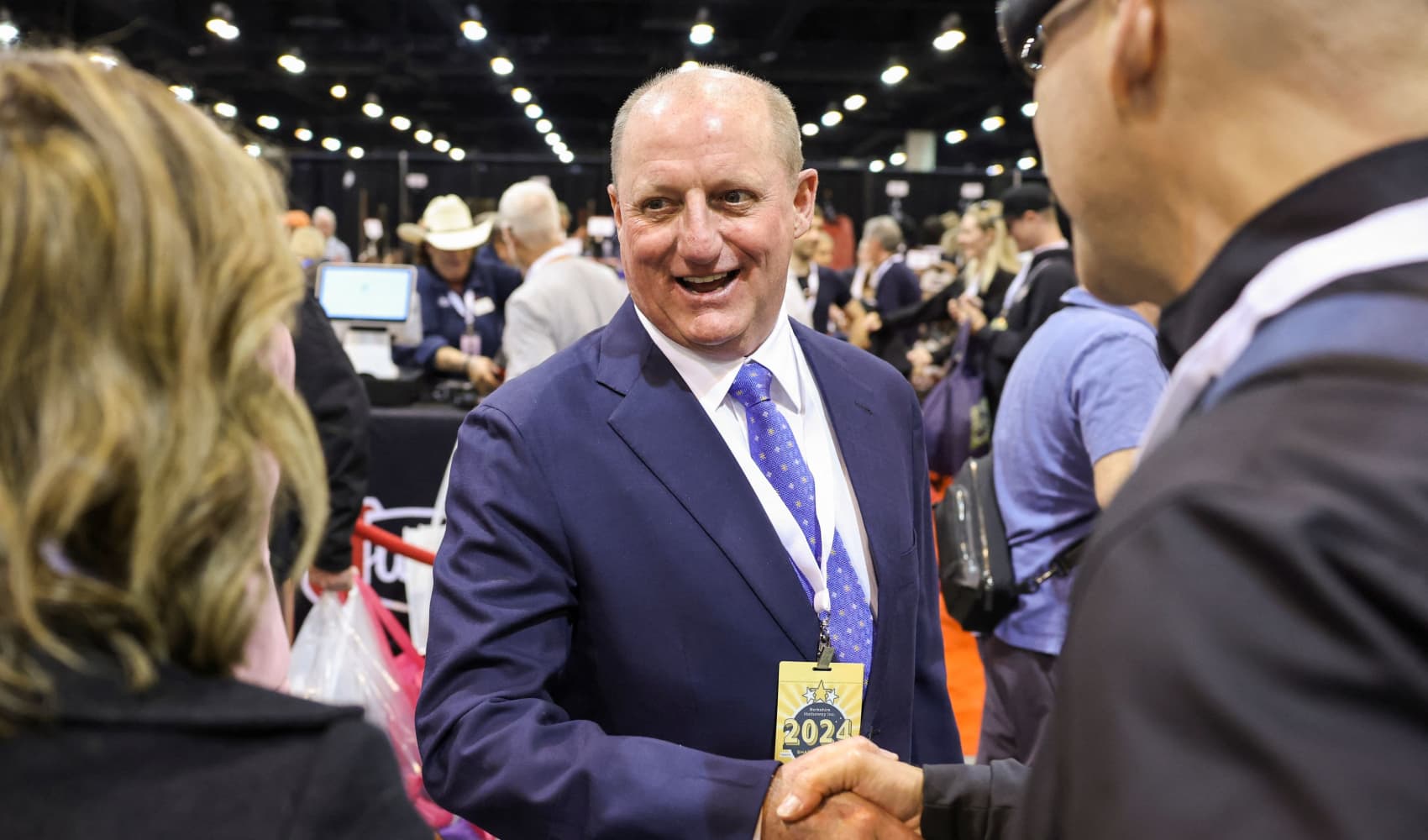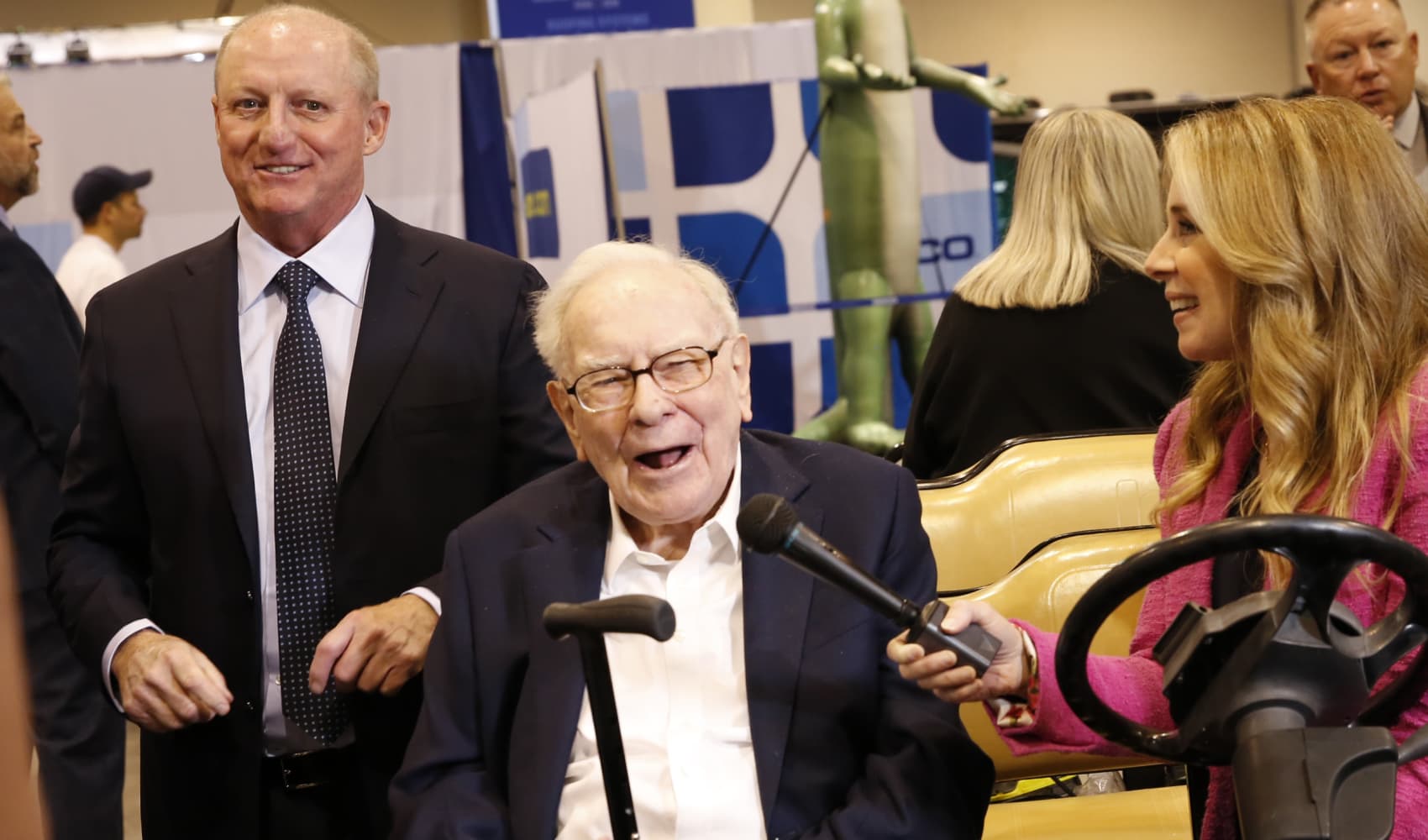Greg Abel: How He Became Buffett's Successor at Berkshire
From Utility Lineman to Oracle: Greg Abel's Ascent to Berkshire Hathaway's Throne
Introduction: The Dawn of a New Era at Berkshire Hathaway
The world of investing is bracing for a seismic shift. After decades of unparalleled leadership, Warren Buffett, the "Oracle of Omaha," is preparing to pass the torch. The chosen one? Greg Abel, a seasoned executive who has steadily risen through the ranks to become Buffett's heir apparent. But who is Greg Abel, and how did he earn the trust of one of the most respected investors of all time? Let's dive into the story of his remarkable journey.
Abel's Early Days: Forging a Path in the Energy Sector
Abel, now 62, didn't start his career on Wall Street. He cut his teeth in the often-unseen, yet crucial, utility and energy industry. This background might seem unconventional for someone poised to lead a conglomerate as diverse as Berkshire Hathaway. But consider this: energy is the lifeblood of modern economies. Understanding its intricacies, challenges, and opportunities provides a unique perspective on the broader business landscape.
A Foundation Built on Practical Experience
His early experiences weren't about flashy deals or high-stakes finance. Instead, they involved the gritty reality of managing complex infrastructure, navigating regulatory hurdles, and ensuring the reliable delivery of essential services. This hands-on approach instilled in him a deep appreciation for operational efficiency and long-term sustainability – values that resonate deeply with Buffett's own investment philosophy.
Ascending the Ranks: From MidAmerican to Berkshire Hathaway Energy
Abel's trajectory took a significant turn when he joined MidAmerican Energy Holdings Company (now Berkshire Hathaway Energy) in 1999. Through a series of strategic acquisitions and organic growth initiatives, he played a pivotal role in transforming the company into a dominant force in the energy sector. This wasn't just about expanding the company's footprint; it was about creating a resilient and profitable business model that could withstand the volatile nature of the energy market. Think of it like building a sturdy dam to withstand the unpredictable forces of a river.
Mastering the Art of Value Creation
Under Abel's leadership, Berkshire Hathaway Energy demonstrated a remarkable ability to generate consistent returns, even in the face of fluctuating commodity prices and evolving regulatory landscapes. This track record of value creation caught Buffett's eye and paved the way for Abel's broader involvement in the Berkshire Hathaway empire.
Buffett's Right-Hand Man: Earning the Oracle's Trust
Abel's success at Berkshire Hathaway Energy didn't go unnoticed. Buffett recognized his operational acumen, strategic thinking, and unwavering commitment to long-term value. Over time, Abel became an increasingly trusted advisor, playing a key role in evaluating potential acquisitions and shaping the overall direction of Berkshire Hathaway's vast portfolio. It's like a master craftsman taking on a talented apprentice, gradually entrusting them with increasingly complex projects.
A Shared Vision: Alignment with Buffett's Principles
Perhaps the most crucial factor in Abel's ascent was his alignment with Buffett's core investment principles. Both men share a deep skepticism of short-term speculation, a preference for businesses with durable competitive advantages, and a relentless focus on intrinsic value. This shared vision ensured that Abel would be a steward of Berkshire Hathaway's legacy, rather than a radical disruptor.
The Heir Apparent: A Revelation at the Shareholder Meeting
The formal announcement of Abel as Buffett's successor came in 2021, thanks to an inadvertent slip-up by the late Charlie Munger during a shareholder meeting. While the revelation might have been unplanned, it was far from a surprise to those who had been following Abel's career. He had long been considered the frontrunner for the top job, and Munger's confirmation simply solidified his position.
Navigating the Transition: A Deliberate and Measured Approach
The well-telegraphed move has given Abel ample time to win over shareholders and other key stakeholders at Berkshire Hathaway. This isn't just about introducing him to the company's inner circle; it's about ensuring a smooth and seamless transition of power. Think of it as a carefully choreographed dance, where each step is precisely timed and executed.
Vice Chairman of Non-Insurance Operations: A Broad Portfolio
Since 2018, Abel has served on Berkshire Hathaway's board and held the title of vice chairman of non-insurance operations. This role places him in charge of a diverse range of businesses, including utilities, railroads (BNSF), and retail operations like Dairy Queen and See's Candies. It's a complex portfolio that demands a deep understanding of various industries and business models.
A Deep Dive into Diversification
This broad oversight provides Abel with a unique vantage point to assess the strengths and weaknesses of Berkshire Hathaway's diverse holdings. He is responsible for ensuring that each business is operating efficiently, generating consistent returns, and contributing to the overall growth of the conglomerate. It's like conducting an orchestra, where each instrument must play in harmony to create a beautiful symphony.
Abel's Leadership Style: Pragmatic and Results-Oriented
Those who have worked with Abel describe him as a pragmatic, results-oriented leader who is deeply committed to operational excellence. He is known for his ability to quickly grasp complex issues, make informed decisions, and hold his team accountable. He's not one for micromanaging, but he expects his team to deliver results. Think of him as a coach who empowers his players to perform at their best, while also providing guidance and support when needed.
Building Strong Relationships: Fostering a Culture of Collaboration
Abel also places a high value on building strong relationships with his colleagues and stakeholders. He understands that collaboration and teamwork are essential for achieving long-term success. He fosters a culture of open communication, where ideas are freely shared and feedback is encouraged. This collaborative approach ensures that everyone is working towards the same goals.
The Future of Berkshire Hathaway: What to Expect Under Abel's Leadership
So, what can we expect from Berkshire Hathaway under Greg Abel's leadership? While it's impossible to predict the future with certainty, several key trends are likely to emerge. First, expect a continued emphasis on long-term value creation. Abel is a staunch believer in Buffett's investment philosophy, and he is unlikely to deviate from this proven strategy.
Embracing Innovation: Adapting to a Changing World
Second, look for Berkshire Hathaway to embrace innovation and adapt to the changing business landscape. While Abel is not a tech visionary, he understands the importance of staying ahead of the curve and investing in companies that are poised for future growth. This may involve exploring new industries, adopting new technologies, and embracing new business models.
A Focus on Operational Efficiency
Third, expect a continued focus on operational efficiency and cost control. Abel is a master of streamlining operations and maximizing profitability. He is likely to implement further measures to improve efficiency across Berkshire Hathaway's diverse holdings.
Challenges Ahead: Navigating a Complex World
Of course, Abel will face numerous challenges as he takes the helm of Berkshire Hathaway. These include navigating a volatile global economy, managing a massive portfolio of diverse businesses, and maintaining the company's unique culture. He'll need to adapt to geopolitical risks and technological advancements.
The Weight of Expectations: Living Up to a Legacy
Perhaps the biggest challenge will be living up to the legacy of Warren Buffett. Buffett is not just an investor; he is a cultural icon. Abel will need to earn the respect and trust of shareholders, employees, and the broader business community. This is no small task.
The Endgame: Handing Over the Reins in 2025
Warren Buffett plans to hand over the reins of Berkshire Hathaway at the end of 2025 to Greg Abel, who has been working for the legendary investor for more than two decades and has a long track record as a business operator in his own right. This transition won't happen overnight. It's a gradual process, carefully orchestrated to ensure a smooth transfer of power. As the clock ticks down to 2025, all eyes will be on Greg Abel as he prepares to lead Berkshire Hathaway into the future.
Conclusion: The Dawn of a New Chapter
Greg Abel's journey to the top of Berkshire Hathaway is a testament to his hard work, strategic thinking, and unwavering commitment to long-term value. From his early days in the energy sector to his current role as Buffett's heir apparent, he has consistently demonstrated the qualities of a strong and effective leader. While the challenges ahead are significant, Abel is well-prepared to navigate them and lead Berkshire Hathaway into a new era of growth and prosperity. He is ready to carry the torch, guided by the principles of value investing and a deep understanding of what it takes to build enduring businesses. As we look ahead, the future of Berkshire Hathaway under Greg Abel's leadership is undoubtedly one to watch.
Frequently Asked Questions
Here are some frequently asked questions about Greg Abel and his role at Berkshire Hathaway:
- Who is Greg Abel?
Greg Abel is the designated successor to Warren Buffett as CEO of Berkshire Hathaway. He currently serves as Vice Chairman of Non-Insurance Operations.
- What is Abel's background?
Abel has a background in the utility and energy industry, having spent many years at Berkshire Hathaway Energy. He holds a bachelor's degree in business administration from the University of Alberta.
- When will Abel become CEO of Berkshire Hathaway?
While no specific date has been publicly announced, Warren Buffett has indicated that he plans to hand over the reins at the end of 2025.
- What are Abel's key strengths?
Abel is known for his operational expertise, strategic thinking, and ability to create value in complex businesses. He is also a strong communicator and relationship builder.
- Will Berkshire Hathaway's investment strategy change under Abel?
It is expected that Abel will largely maintain Berkshire Hathaway's core investment philosophy of long-term value investing, focusing on companies with durable competitive advantages.

